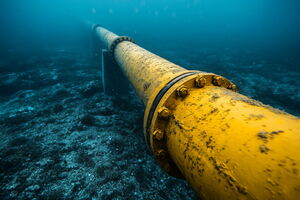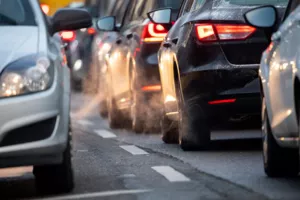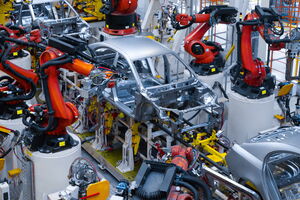Michael Bloss, klimapolitischer Sprecher für die Grünen im EU Parlament, kommentiert die Veröffentlichung des Vorschlags der EU Kommission zur Regulation von staatlichen Unterstützungen:
Investitionen, die jetzt getätigt werden, entscheiden über den Erfolg des European Green Deals. Deshalb ist es gut, dass sich EU-Wettbewerbskommissiarin Margrethe Vestager und ihrer Behörde endlich an den Kern der Probleme beim Klimaschutz wagt und neue Richtlinien für staatliche Subventionen für Umwelt und Energie vorschlägt. Wichtige neue Instrumente für die benötigte Transformation der Industrie, wie z.B. Klimaverträge (Carbon Contracts for Difference), werden von der Kommission für gut befunden.
Doch leider ist die Umsetzung mangelhaft, denn sie zementiert den Fluss staatlicher Milliardengelder bei Diesel, Kerosin und Gas. Dieser Milliardensumpf sollte trockengelegt werden, wie uns das die Wissenschaft seit Jahren eindeutig empfiehlt.
Das neue EU Klimagesetz verlangt aber klar von der Kommission, die Kohärenz aller EU-Maßnahmen im Hinblick auf die Klimaziele sicherzustellen. Doch dieser Vorschlag bricht mit der Verpflichtung. Wir müssen raus aus den fossilen Subventionen.
Wir brauchen große und mutige Schritte bei der Reduktion von Treibhausgasen. Jetzt aber wird für jeden Trippelschritt ein Milliardenhahn geöffnet. So werden Fake-Lösungen wie der fossile Wasserstoff oder kohlenstoffarme Brennstoffe für Flugzeuge subventioniert, ohne wirklich einen großen Einfluss auf die Klimaziele zu haben. Die Kommission sollte stattdessen klare Richtlinien für Investitionen festlegen, die uns auf einen eindeutigen Klimapfad mit Zielmarke 100 Prozent Erneuerbare Energien bringen.
English
Investments made now will determine the success of the Green Deal. That's why it's good that EU Competition Commissioner Margrethe Vestager are finally getting to the heart of the climate change problem and proposing revised guidelines for government subsidies for the environment and energy. Important new instruments for the needed transformation of the industry, such as climate contracts (Carbon Contracts for Difference), are important additions to the guidelines.
But unfortunately, implementation is flawed, as the guidelines continue to allow the flow of billions of Euros of government money in diesel, kerosene and gas. As science has been clearly recommending for years that these subsidies must end, and quickly.
However, the new EU climate law clearly requires the Commission to ensure the coherence of all EU measures with regard to climate targets. But this proposal breaks with that commitment. We need to get out of fossil fuel subsidies.
We need big and bold steps in reducing greenhouse gases. But billions of Euros continue to support incremental reductions in emissions, rather than serious emission cuts. So false solutions like fossil hydrogen or low-carbon fuel blending for aircraft are subsidized without really having much impact on climate targets. Instead, the Commission should set clear guidelines for investments that put us on a clear climate path with a target of 100 percent renewables.
Hintergrund
Wie lautet das genaue Wording der Kommission zu “State Aid”?
Gas can be supported as long as it can be demonstrated it does not have a lock-in effect. This does not make sense, as no investment will be triggered for only 10 years before being shut off:
Page 35 (Point 71)
Measures that directly or indirectly involve support to fossil fuels, in particular the most polluting fossil fuels, are unlikely to create positive environmental effects and often have important negative effects because they can increase the negative environmental externalities in the market. The same applies for measures involving new investments in natural gas, unless it is demonstrated that there is no lock-in effect. This will in principle render a positive balancing for such measures unlikely, as further explained in Chapter 4.
The section for support for renewable energy is expanded to reduction and removal of greenhouse gas emissions (page 36).
Points 74-77 detail the technologies that are included, which are the production of renewable and low carbon energy, aid for energy efficiency including high-efficiency cogeneration, aid for carbon capture, storage and use, and aid for the reduction or avoidance of emissions resulting from industrial processes, hydrogen and other low-carbon gases, and as well as CCS/CCU, support for biofuels, bioliquids, biogas and biomass fuels
Aid can be given for reducing greenhouse gas emissions, whilst the Climate Emergency requires phasing out emissions immediately. Examples of this are throughout the text including pont 74 (p. 36).
- Der ganzen Vorschlag kann hier nachgelesen werden.
- Weitere Informationen
- Öffentliche Anhörung







